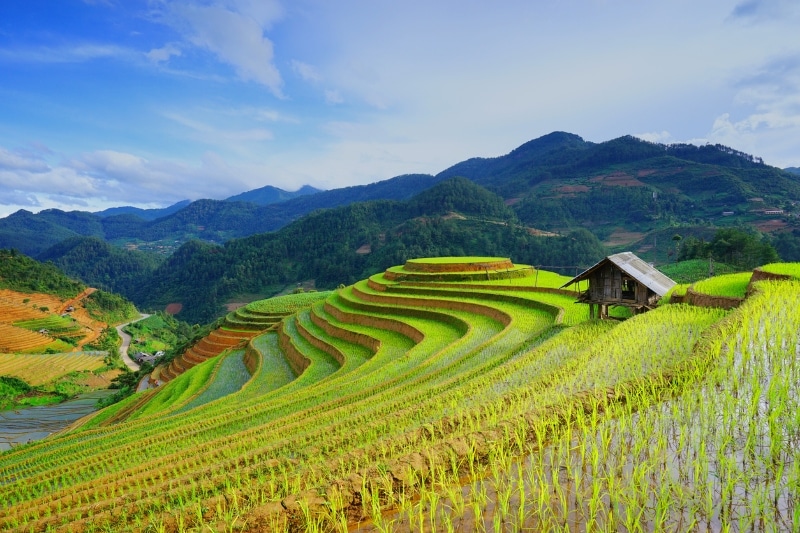Germany’s president, Frank-Walter Steinmeier, recently undertook a state visit to Thailand, where he toured a project in Ubon Ratchathani dedicated to promoting sustainable and climate-friendly farming practices.
This initiative encompasses a 5.6-hectare integrated farmland and is a key component of the Inclusive Sustainable Rice Landscape (ISRL) collaboration between Germany and Thailand. Its primary goal is to inspire farmers to cultivate rice in a manner that mitigates global warming and aligns with the principles of sustainable agriculture.
Within the framework of the project, the showcase farm implements various techniques aimed at enhancing the management of soil and water resources. One notable approach involves the utilization of laser technology for precisely leveling the soil in rice fields. This technology serves to minimize fertilizer loss, ensuring optimal fertilization for the crops.
Furthermore, an upgraded water management system has been introduced to curtail both water and fuel consumption in the rice cultivation process. By incorporating cattle manure as fertilizer and adjusting its application based on soil analysis results, the project also achieves cost reduction.
To address environmental concerns, the farm adopts a sustainable practice by repurposing farm stubble into animal feed. This not only contributes to waste reduction but also eliminates the need for burning, promoting ecological balance.
Funding for the ISRL project comes from the Global Environment Facility, facilitated through the United Nations Environment Programme. Implementation of ISRL pilot projects in Ubon Ratchathani and Chiang Rai in the North is spearheaded by Germany’s principal development agency, GIZ (German Development Cooperation), in collaboration with Thailand’s Agriculture and Cooperatives Ministry’s Rice Department and Olam Agri, a multinational agri-business company.
Thailand holds a prominent position as a major global rice producer and exporter, boasting an annual output estimated at 30 million tonnes, of which 10 million tonnes are earmarked for export.
Despite this agricultural success, the nation has grappled with the repercussions of unsustainable land management practices over recent decades, particularly experiencing the negative effects of greenhouse gas emissions. The adverse outcomes of monocropping and encroachment into forests include environmental degradation, a decline in biodiversity, and weakened ecosystems.
(Source: The Nation)
